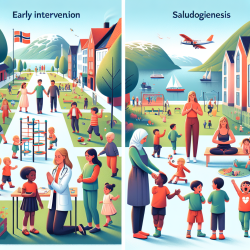The landscape of health interventions is rapidly evolving, with digital technologies playing an increasingly pivotal role. As practitioners in the field of education and health services, understanding and integrating these advancements into our practices can significantly enhance our ability to support young adults in achieving healthier lifestyles. The Social Mobile Approaches to Reducing Weight (SMART) 2.0 study offers valuable insights into how digital health interventions can be effectively utilized for weight loss among young adults.
The Power of Digital Health Interventions
The SMART 2.0 study is a groundbreaking 24-month randomized controlled trial that explores the effectiveness of multimodal, technology-based weight-loss interventions. Conducted among overweight or obese young adults aged 18-35 years in university settings, this study leverages popular mobile and social technologies to promote weight loss and healthy behaviors.
Participants in the intervention groups receive wearable activity trackers, connected scales, and personalized daily text messages with evidence-based information about weight loss and behavior change techniques. Additionally, one group benefits from brief, technology-mediated health coaching sessions. The control group receives only the wearable devices and app access.
Key Findings and Implications for Practitioners
- Personalization and Engagement: The study highlights the importance of personalized interventions that meet individuals where they are—both physically and digitally. By utilizing wearables and personalized messaging, practitioners can enhance engagement and accountability among young adults.
- Scalability and Accessibility: Digital interventions offer scalable solutions that can reach a wide audience without the constraints of traditional in-person programs. This approach is particularly beneficial for young adults who are already immersed in digital environments.
- Health Coaching: The addition of technology-mediated health coaching provides an extra layer of support that can lead to greater improvements in weight loss outcomes. Practitioners should consider integrating similar coaching elements into their programs to maximize effectiveness.
Encouraging Further Research and Application
The SMART 2.0 study underscores the critical need to advance our understanding of digital health interventions' long-term effects and potential for widespread dissemination. As practitioners, it is essential to stay informed about these developments and consider how they can be applied within our own contexts.
By embracing technology-driven approaches, we can empower young adults to take control of their health journeys in ways that are both effective and sustainable. Whether through further research or direct application of these findings, there is immense potential to make a positive impact on public health outcomes.
To read the original research paper, please follow this link: Social Mobile Approaches to Reducing Weight (SMART) 2.0: protocol of a randomized controlled trial among young adults in university settings.










